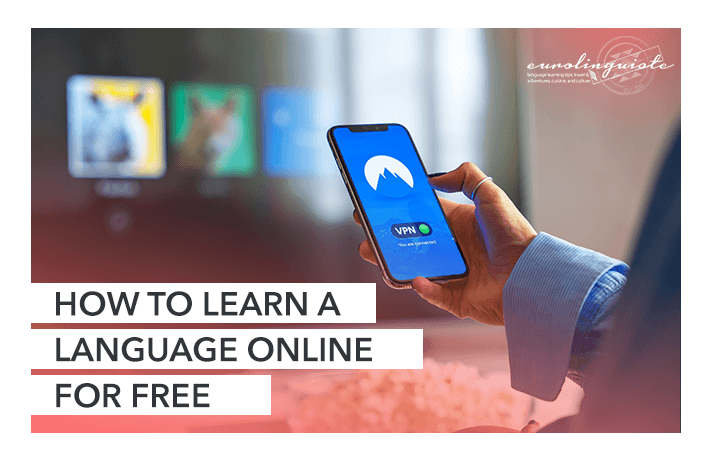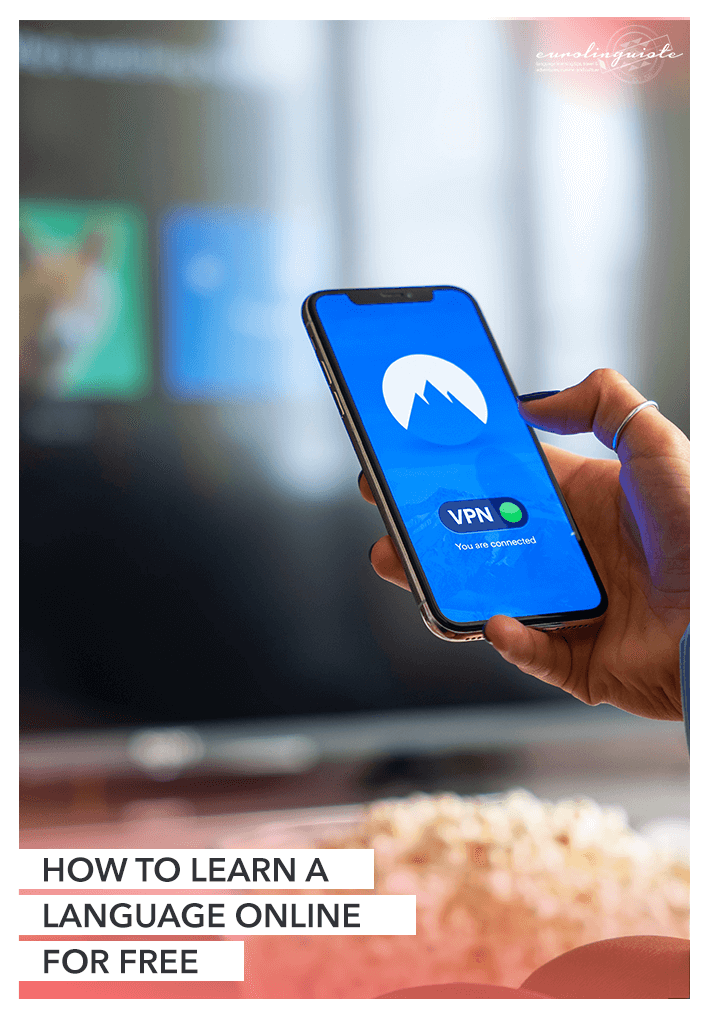How to Learn a Language Online for Free: 7 Places to Find Native Content in Your Target Language

My name is Shannon Kennedy and I'm the language lover,…
So you’ve decided to learn a new language?
It was all going fine, you watched a few videos on the best apps and websites for languages and you’ve found the perfect resource. Let’s say it’s an app. This language thing looks super easy now!
You go to the website of the oh-so-perfect app you found. Looking down their list of languages, your face falls.
Oh no! Your language isn’t on the list!
This is a problem I’ve faced many, many times in my Czech learning because, unfortunately, some languages are just more popular than others for learners.
Don’t worry! You are in the perfect place, because I’ve got a way for you to learn a language for free without needing those pesky apps. If you can find apps, that’s great, but you can do fine without them.
What’s the secret?
The not-so secret here is native material.
Learning with Material for Native Speakers
By this, I mean content made for people living in the country who speak your language as their mother tongue, their first language.
This is brilliant for you because most people’s aim as a language learner is to be able to communicate with and understand natives, not just to have a master streak and complete Duolingo tree.
Native material is readily available in any language where there are native speakers, (which counts for most of them apart from Latin and similar) and can be found for free on the internet if you know where to look.
Where should I be looking, I hear you ask…
Where to Find Native Content Online
Native content can be found anywhere native speakers are, so the internet is full of it!
Depending on the language, it might be found in places you use anyway, for English entertainment. Some countries are more active in their own websites and apps.
For lower levels, throwing yourself straight into adult level and speed television or radio might be a little intense and you probably won’t understand enough to make it very useful. Start with children’s material like picture books and cartoons. These are great because the language is simple, slow and repetitive so you’ll be able to pick things up.
Youtube
The first place to find some awesome content is the places we already spend our time!
To find content on Youtube, search for a keyword in your target language. Whether it is “daily vlog” or “cooking,” it’s best to watch something that you would watch anyway. This makes life easier because you won’t have to force yourself to watch it — it will feel more enjoyable and less like homework.
You can also find shows for children on Youtube, using the same method. For me, the main ‘pro’ of Youtube for Kids is the number of dubs available for things you already have in English. For example, the show ‘Bing’ is dubbed in 15+ languages and is available for free!
There aren’t identical videos on each – you can find some in one language but not another, but that isn’t an issue.
Netflix
As Shannon has mentioned before, Netflix also has films and tv in many languages.
You can set your language, choose subtitles (which are often available in English as well), and watch loads of great shows!
To find more in your target language, many people recommend using a VPN. This will give you even more to watch!
Days of French ‘N Swedish suggests creating a separate profile for watching in your target language because it gives you more options and fewer distractions in English!
Radio Garden
That’s two video options… now for radio!
Radio Garden is a website that lets you select a radio anywhere in the world and play it.
It is very useful for hearing the language in a real, casual format. In short, it’s radio: it’s live, unscripted and often local. It also tells you a lot about the music of the country, which is a bonus!
To use this, click on one of the dots within the country your language is spoken in. It will connect you to a radio station and it will start playing! Be warned: it might just play English music because it’s popular in a lot of the world. Try another station or wait until the song finishes.
For bonus points, try out a few across the country! You’ll be exposed to regional accents and dialects that will broaden your listening and understanding.
Native Television Websites
Some countries don’t really use Youtube, but that doesn’t mean they aren’t on the internet at all! For example, most Czech programs are on ceskatelevize.cz and similar sites. Often, they will have their own equivalents or websites dedicated to certain channels.
Do some research on popular shows, and then search for them. You’ll find the places that the people living there get shows online. If this doesn’t help and it’s not on Youtube, ask Reddit!
My favorite part of these sites is that the advertisements are in your target language! Seems small, but bite-sized fast-speaking advertisements are a fun challenge!
Instagram and other Social Media
For a smaller chunk of target language exposure, Instagram captions and stories are wonderful!
Follow celebrities, singers and reality tv stars to add study to your daily scroll.
There’s also a lot of “daily Czech words” or “learn Czech with so-and-so” accounts that you can find, which are very helpful!
News Sites
Similar to Youtube, articles, and bits of news in your target language are super helpful! Unlike video, you can use a dictionary to help you out here which is a nice break.
News sites are usually available worldwide, so you won’t have a VPN issue here.
Apart from any learning benefits, it’s nice to know what’s going on so that’s another pro for this.
Supplement your Native Material with Other Methods
On a different note, native material can do a lot for your learning, but you will progress so much quicker if you supplement it with some other useful resources. There are a few simple additions that could skyrocket your learning…
- A source of guided content like Innovative Language, a good Youtube teacher, or your own tutor
- A way to practice vocab you pick up like Anki, Memrise, Drops or paper flashcards
- Speaking practice – a language exchange, tutor or even just speaking to yourself out loud
- Writing practice – your own journal entries
Final Thoughts
I hope that these recommendations helped you out! Let me know what you thought in the comments below.
If you need specific recommendations or advice, ask native speakers in Discord, Facebook groups or other online communities. I wish you luck in all of your language endeavors and hope I’ve shown you that you can learn any language you want, whether or not it’s popular to learn.
Thank you so much to Shannon for letting me share my advice with you here, and I hope to see you again soon!
About the Author: Lola is the student and language learner behind Mustard Language, where she shares posts for new language learners filled with tips, methods and recommendations to help you along. She loves finding new methods to study czech, meeting new people and writing. If you’d like to read more posts like this, visit the Mustard Language website!

My name is Shannon Kennedy and I'm the language lover, traveler, and foodie behind Eurolinguiste. I'm also the Head Coach of the Fluent in 3 Months Bootcamp, co-founder of Women in Language, and former Resident Polyglot at Drops.



